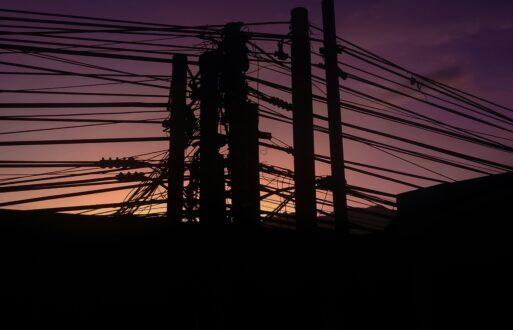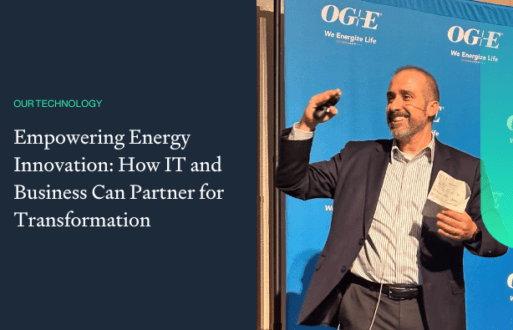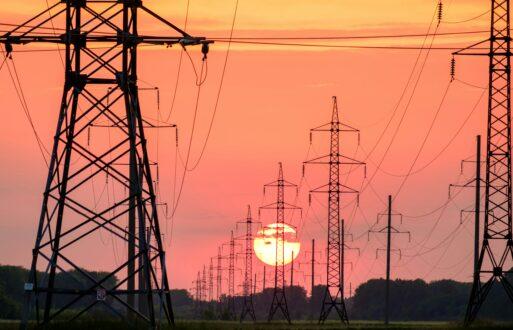Since its release in November 2022 by OpenAI, ChatGPT, a generative artificial intelligence (GenAI) chat bot, has captivated the imagination of millions. The potential for leveraging generative AI in the energy industry specifically is vast and promising. As this technology demonstrates its power across industries, energy companies have an opportunity to harness generative AI to transform their operations.
ChatGPT has cleverly answered questions, offered advice, cracked jokes, composed poems, even written software with seemingly unlimited knowledge of the world.
ChatGPT belongs to a new generation of large language models (LLMs). LLMs are a special type of neural network that has been trained with vast amounts of textual data and fine-tuned to perform general tasks.
The latest model contains over a trillion parameters and has cost hundreds of millions of dollars to build. It has proved to be very effective in inference and making predictions from available information, especially from text. GenAI is likely to fundamentally change how we work in software application development with a strong boost to productivities. It’s imperative we all incorporate GenAI into current workflows to stay competitive in a fast-changing market.
In this blog post, we’ll explore two areas where you can leverage generative AI in the energy industry to improve existing processes: software development and data analytics.
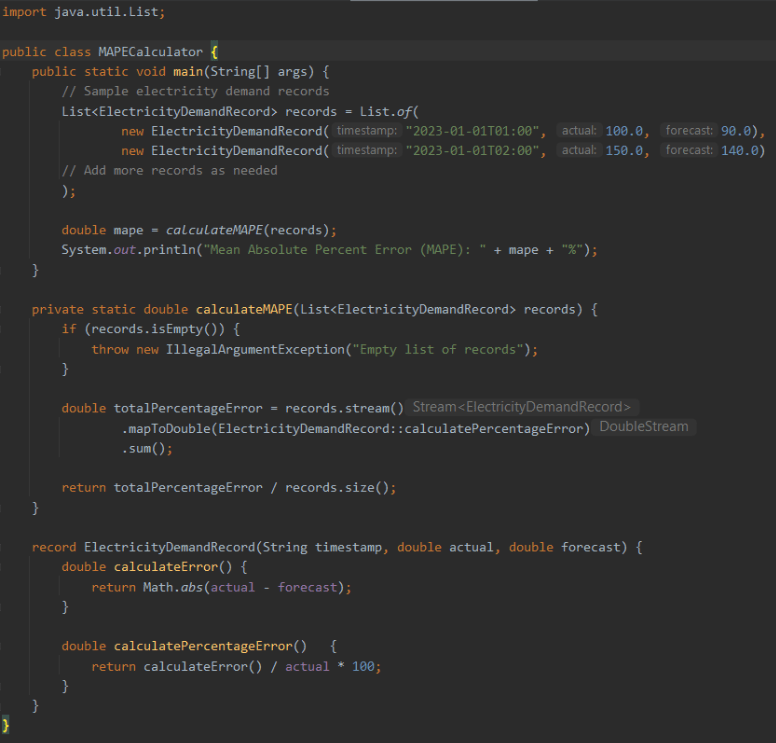
GenAI in data analysis
Secondly, companies are increasingly relying on data analysis to gain insights and inform their decisions. Generative AI can greatly expand the access by any non-technical users to data analytics with its natural language processing (NLP) abilities. That’s especially true when integrated with external systems such as database and business intelligence tools. Instead of writing code, such as SQL, to perform data analysis, a user can simply ask questions to the GenAI system and receive not only answers but also supporting data and analysis.
For example, a power plant manager may ask, “How can I improve operational efficiencies?” The system trained with power utility companies’ ISO market participant data could provide answers and analysis as shown in the following screenshot. The user can ask follow-up questions and request more details. The GenAI system can be configured and trained to be “context aware” and remember the conversation such that the user does not need to provide the conversation histories in every question.
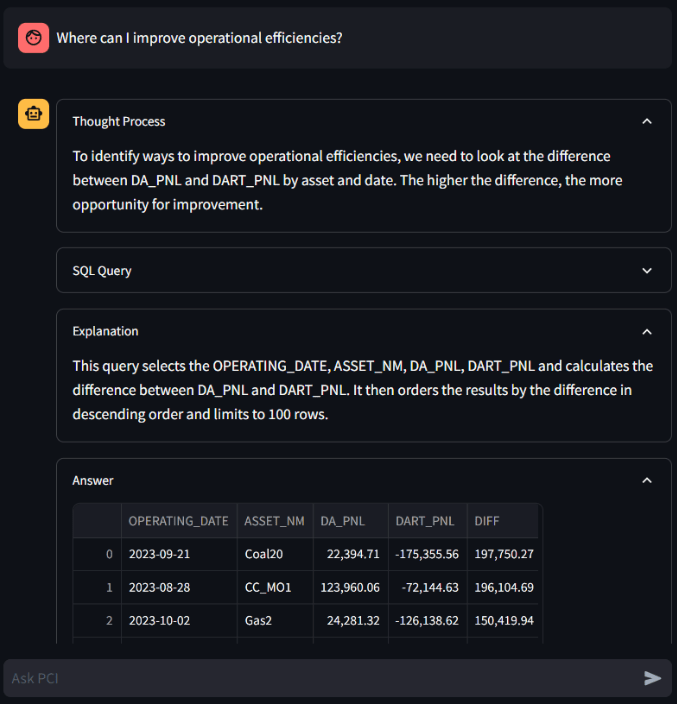
Future of generative AI in the energy industry
So, what’s the future of AI in the energy sector? While GenAI technology has advanced significantly, use of AI in the energy sector still has many limitations that could be dangerous when applied incorrectly. GenAI systems are known to “hallucinate” and make up answers that are not supported by facts. It could leak sensitive data. And it could contain biases that are unethical and immoral. A great deal of effort has been and continues to be invested in making GenAI technology safer and for greater good.
Generative AI is ushering in a new era of productivity in software development and data analytics. It’s streamlining processes of writing, testing, and deploying software applications and enhancing data analytics capabilities for everyone. We’re convinced companies that embrace the adoption and safe use of GenAI stand to gain a competitive edge of delivering high-quality products and services to their customers and driving success in a fast-moving market.
Unlock AI/ML insights for the energy industry
Discover how AI and machine learning can transform your energy operations. Request access to the slide deck from our webinar, “AI/ML Forecast Analytics & the Pursuit of Net Zero,” to learn about AI-driven renewable energy forecasts, managing renewables’ impacts on ancillary services, and much more.



